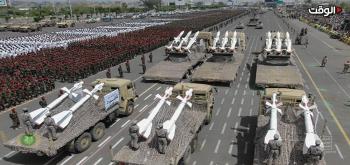Alwaght- Afghanistan's President Ashraf Ghani recently visited India to discuss expansion of relations between the two Asian nations. Ghani and Prime Minister Narendra Modi of India both highlighted the commitment of their countries to increase counterterror efforts. The Afghan president also met with the Indian Minister of External Affairs Sushma Swaraj, with whom he debated economic partnership, transit routes investment, and counterterror measures.
The Chief Executive of Afghanistan unity government Abdullah Abdullah and Foreign Minister Salahuddin Rabbani, too, had separately visited India in September and held talks Indian officials especially about putting strains on Pakistan. The Afghan leaders' visits to India are coming mainly after the American President Donald Trump unveiled its new Afghanistan and South Asia region policy, seeing a more active role for India in the new period.
On the other hand, The American Secretary of State Rex Tillerson on October 25 arrived in New Delhi, the fourth station of the diplomat's five-nation visit. He talked to the Indian leaders on a set of issues.
With regard to significance of the trip, Alwaght has conducted an interview with Professor Nozar Shafiee, an Iranian international affairs analysts, discussing with him the aspects of the visit.
Alwaght: What are the drives and goals behind the Afghan president’s visit to India in the present conditions?
Shafiee: In the new American policy, Pakistan is considered as part of the problem. The Americans argue that despite their massive aids to the Pakistan government, Islamabad does not cooperate honestly with Washington, and is actually far from being in tune with the American track of policies. This motivates the White House to focus on Pakistan in its new strategy for the region. The final aim of the anti-Pakistani agenda is to isolate Islamabad and to drive it out of circle of American allies which are not members in the NATO so that it can label Pakistan as the sponsor of terror.
Alwaght: Why is Afghanistan picked for implementation of the Washington's fresh strategy?
Shafiee: For a long time, Afghanistan has been scene to competition and even conflict of the foreign powers who found it as providing the best place for their reckoning. Therefore, the US decides that Afghanistan is the proper place of either reckoning with Pakistan or persuading it to come on board of the American regional policy. So, the US directs Afghanistan officials' visits to India with its new political path.
Alwaght: How does New Delhi approach the case? What are its interests in that?
Shafiee: Certainly, India and Pakistan cannot come to blows anew on issues such as Kashmir. Indians are following the policy of their ancient realist thinker Kautilya who advised that if a state wants to beat its rival, it needs to befriend the rival’s neighbors and expand relations with them. This will help put pressures and so defeat the opposite side. This is the foundation based on which the Indian leaders have designed their regional strategy. India bolsters ties with Iran and Pakistan's other neighbors, with a special focus on Afghanistan, in a bid to first encircle and reign Pakistan and second cut Islamabad's access to the Central Asia through Afghanistan, an arrangement that will allow it to flex muscles.
Alwaght: How will this trip affect the Pakistan-Afghanistan governments' relationship prospectively?
Shafiee: Such visits have usually sent the two countries' ties into chill, especially that Pakistan will translate Ghani's visit as opening a new front of proxy war against Islamabad. So, we can expect rejuvenated conflict and insecurity in Afghanistan in the future. The closer Afghanistan gets to India, the more it should anticipate deteriorated security situation at home. Thereby, Ghani's visit of India means Kabul's yes to New Delhi and no to Islamabad.
Alwaght: How do you see the future of relations of the US and Pakistan?
Shafiee: This visit to India is a practical move translating the new American policy for Afghanistan and South Asia, and so is a step to further tighten the encirclement of Pakistan .Pakistan knows that it is now the target. This of course will further fray the relations of this country with the US. By these measures, the US wants to alter Pakistan attitude towards the Taliban. However, it seems that Pakistan has vital interests in some areas like relations with Taliban, making it impossible for Washington to simply impose its demands on Islamabad. Moreover, it needs to be added that the Afghanistan crisis is multi-layered and needs to be solved using wise approaches. But the conflict of interests of the regional and international powers even complicated the crisis. It is impossible to solve the problem by eliminating just one factor. This (American) political pathway will hurt the Pakistani people and government’s national pride, and from now on, we should anticipate setting up massive roadblocks ahead of the American presence in Afghanistan.



























